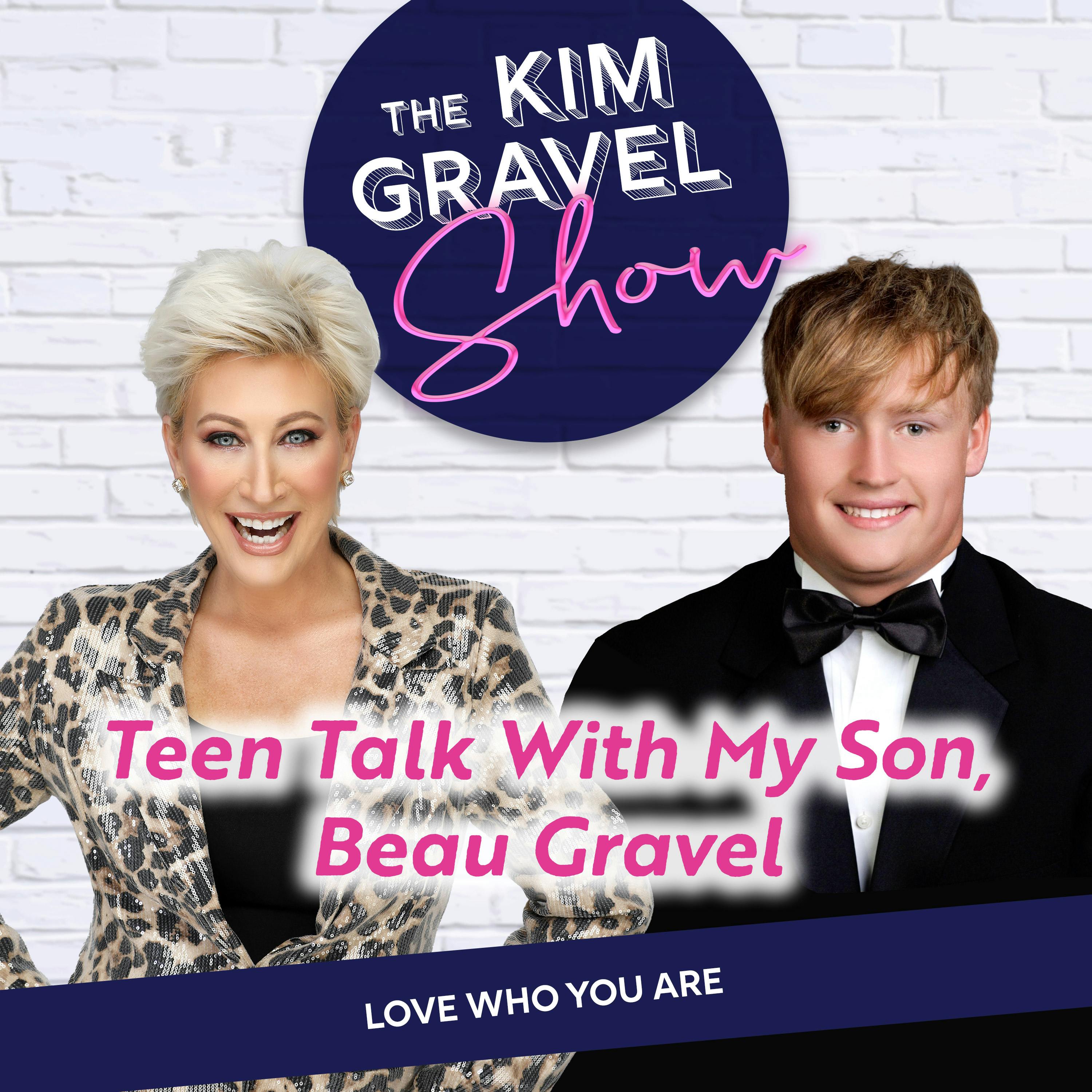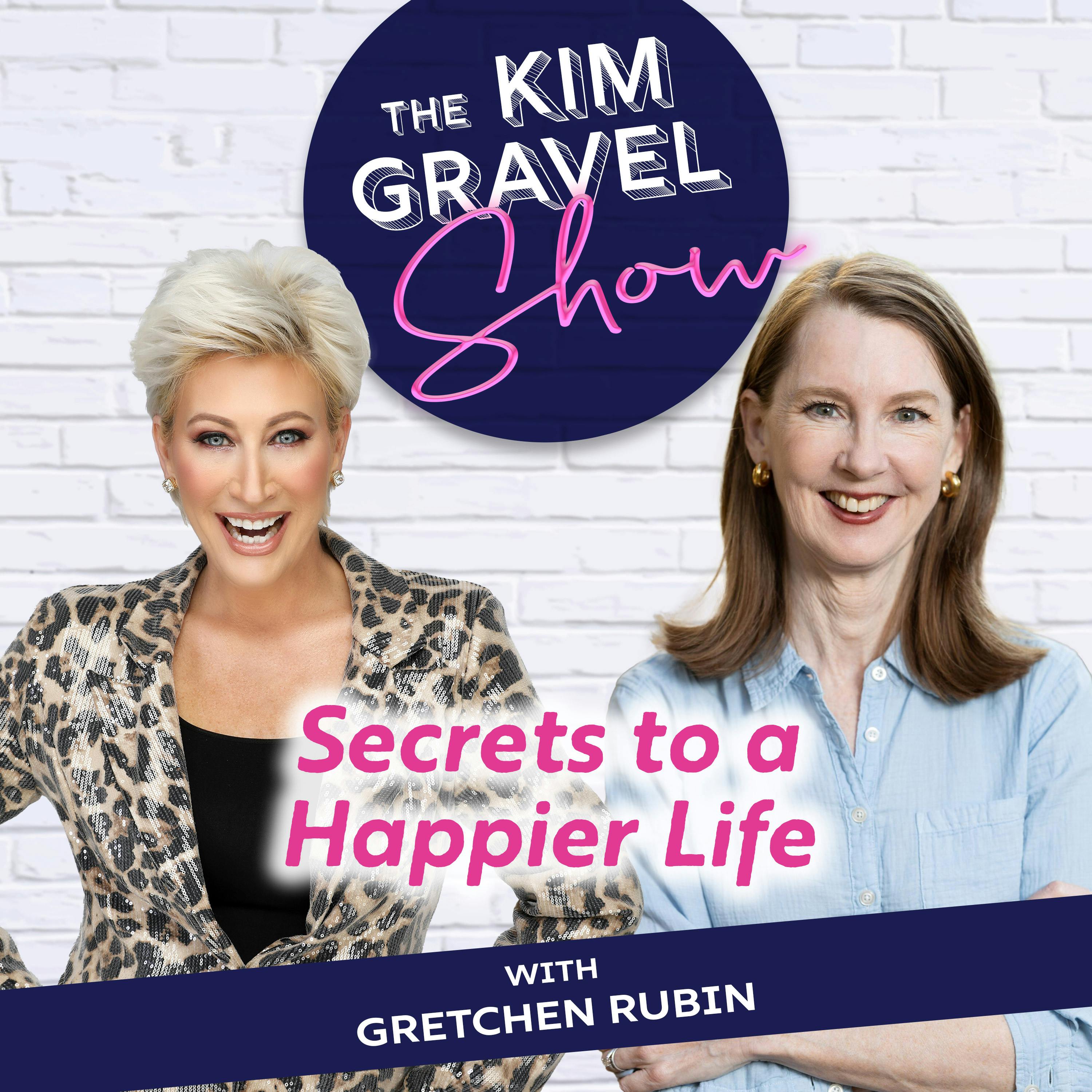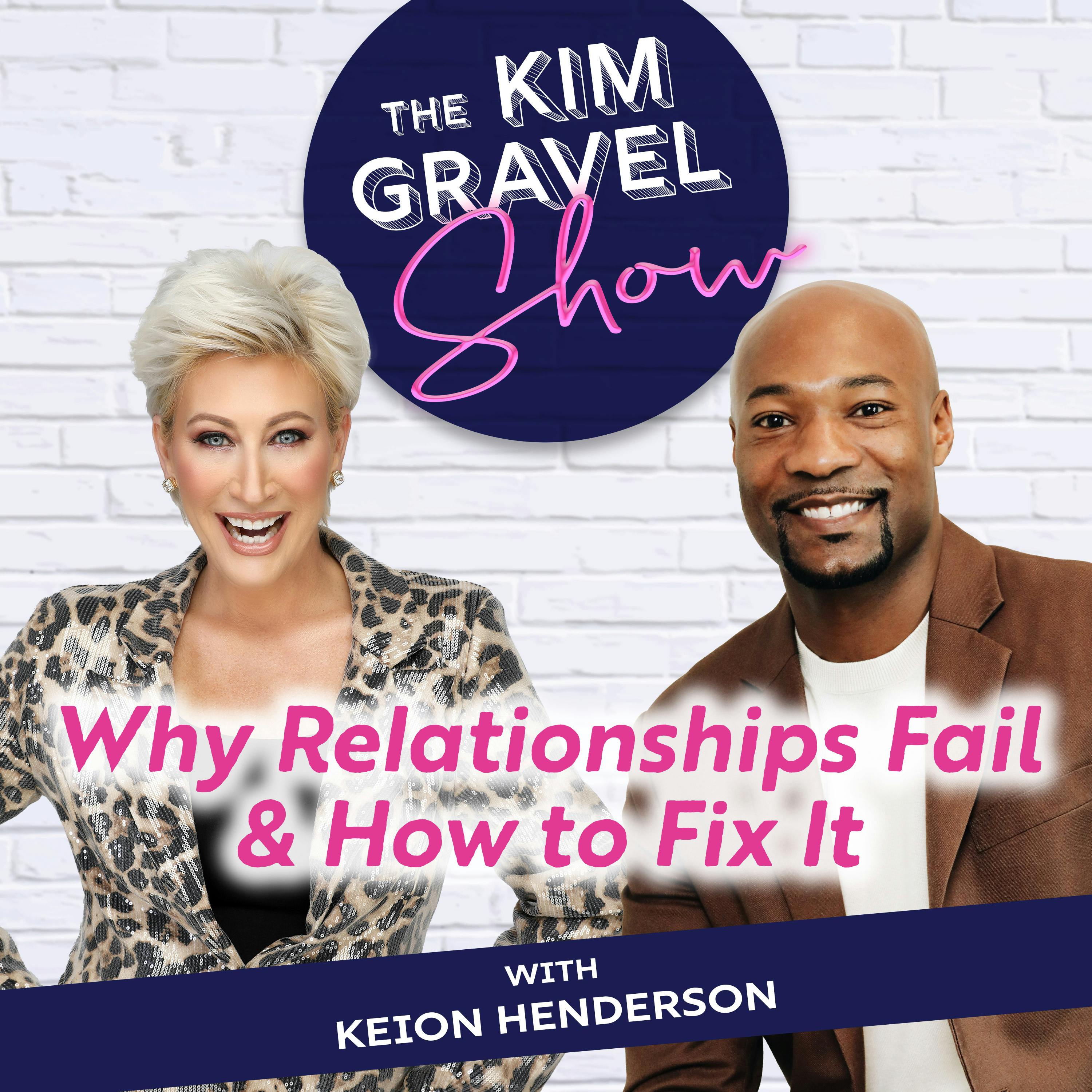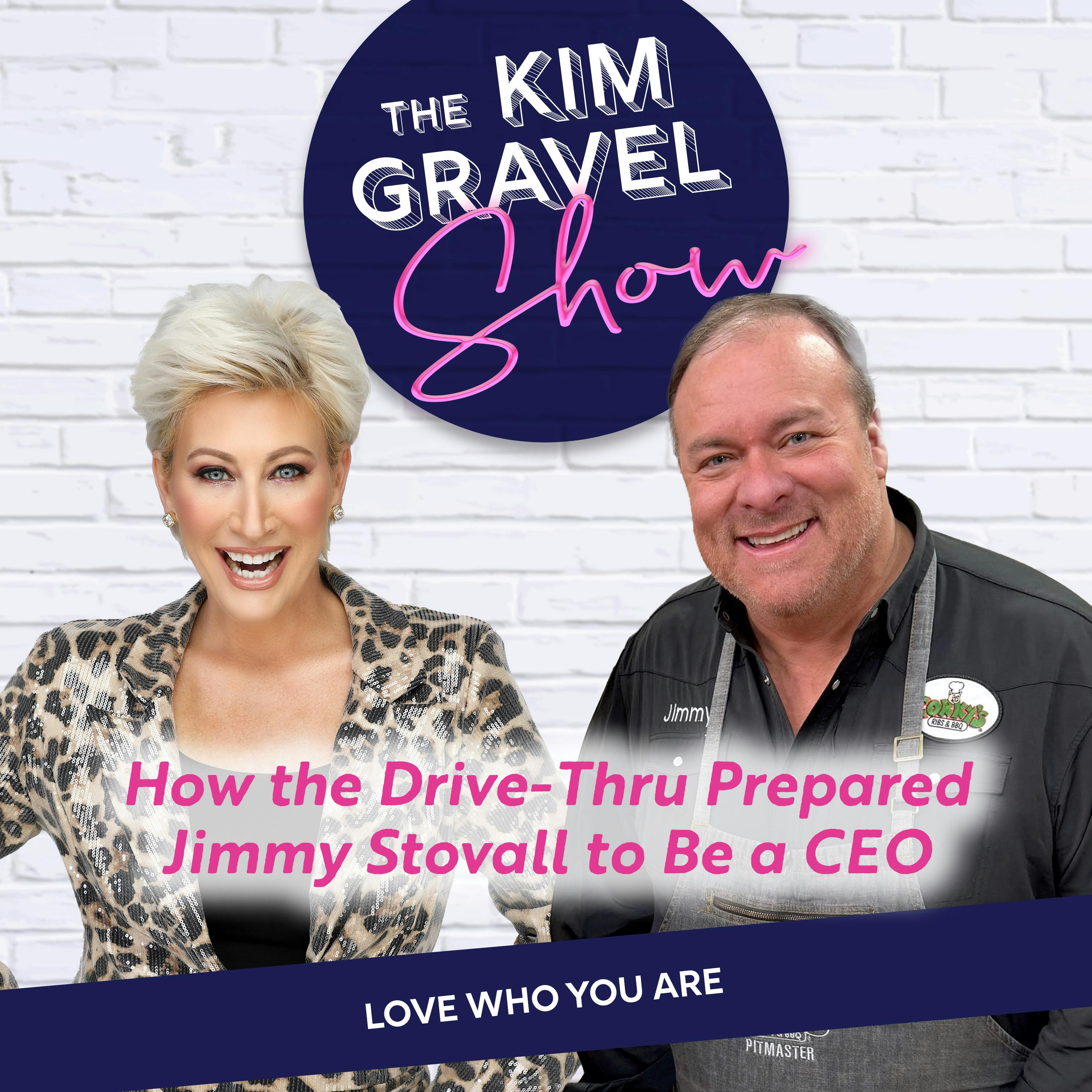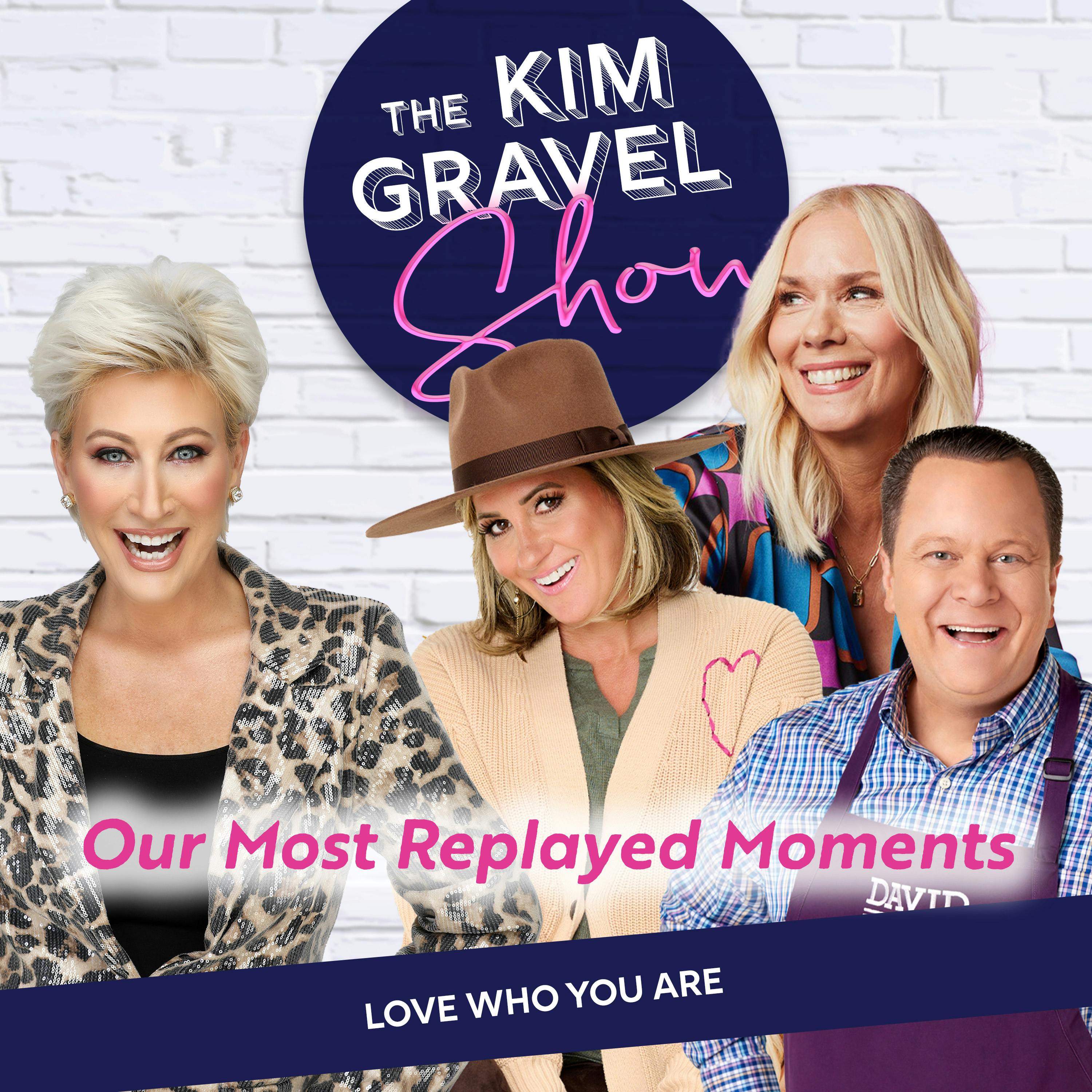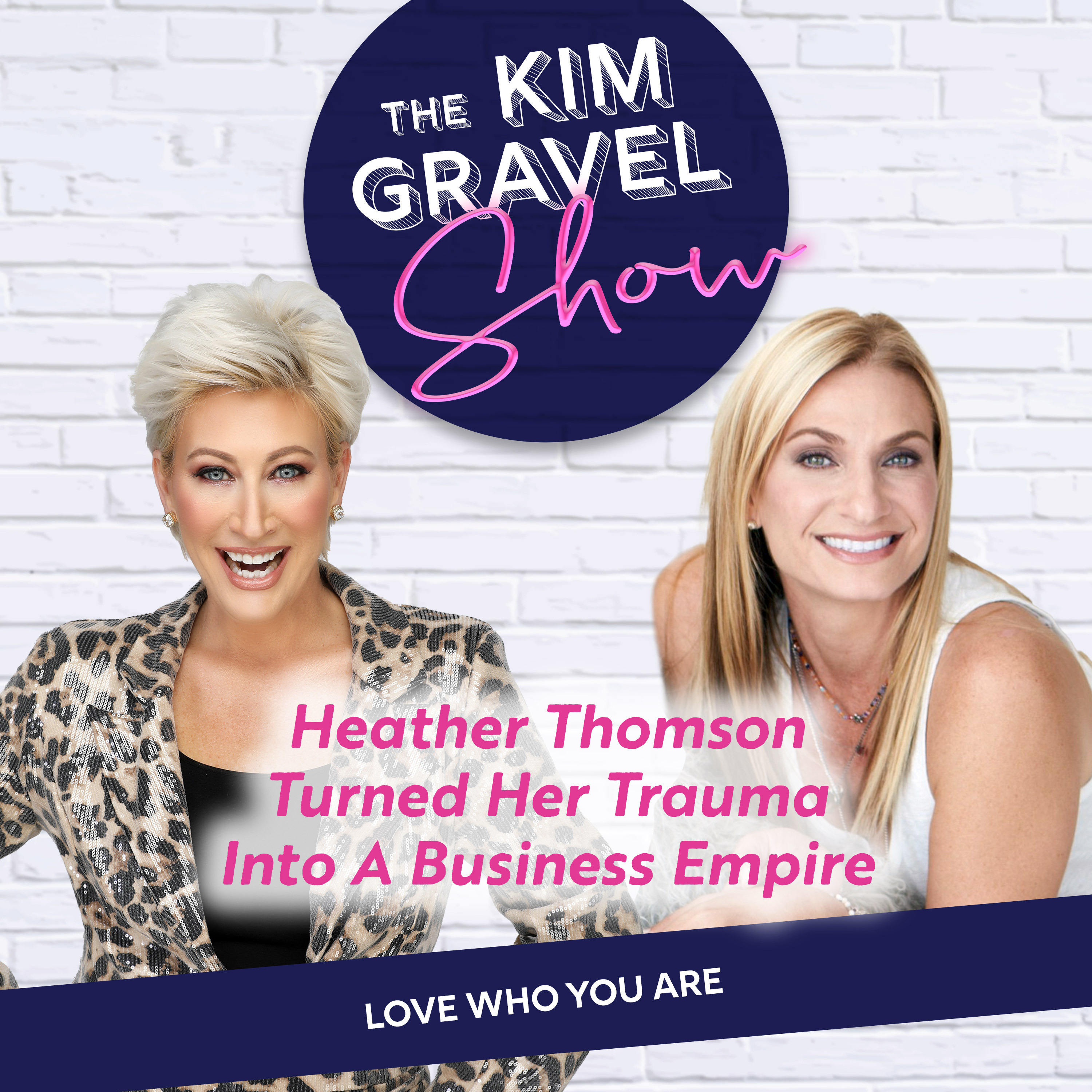How to be a Better Leader at Home & Work with Dr. Tim Elmore

If you want to become a better leader in every part of your life then this episode is for you! This week we’re becoming the kind of leaders everyone wants to follow with leadership coach Dr. Tim Elmore.
If you want to become a better leader in every part of your life then this episode is for you! This week we’re becoming the kind of leaders everyone wants to follow with leadership coach Dr. Tim Elmore.
In our photoshopped, fake-it-til-you-make-it word, Tim and I discuss how being genuine and humble will lead to success in all parts of your life. We break down emotional and social leadership traits, how to become a better leader while retaining hope, and how to motivate your kids to a bright and promising future as leaders.
Tim is the founder and CEO of Growing Leaders, he’s a best-selling author, and a keynote speaker who reaches audiences around the world. Tim shares leadership tips, and the secret qualities of a good leader, which can also be found in his recent book, The Eight Paradoxes of Great Leadership.
In this episode:
- What makes a good leader
- Tim’s 8 paradoxes of great leadership
- How emotional and social intelligence connects to effective leadership
- Why we connect with authentic and genuine people
- How you can lead your children to a bright and better future
- Why we should limit technology time to reduce anxiety
- How a good leader handles the challenges of an ever-changing world
Share LOL with Kim Gravel with a friend!
Connect with Kim:
Connect with Dr. Tim Elmore:
The Eight Paradoxes of Great Leadership
Email lolwithkimgravel@gmail.com or leave us a voicemail at 404-913-6460 and let us know what you think of the show.
Learn more about your ad choices. Visit megaphone.fm/adchoices
*This transcript was auto-generated*
Kim Gravel: [00:00:00] I'm excited about this podcast is a definite understatement. Zac, did I not just drive you crazy about getting our guest on?
You've been talking
Zac Miller: about this guest for a long time. I am so excited.
Kim Gravel: You know, for me like great leaders and great writers are like rock stars for me. I mean, it's like Def Leppard for me, you know, Def Leppard in the eighties.
Well, you don't know because you're too young, but our guests will know. I'm sure from back in the eighties, how these rock bands just had these, that is what I feel about our guests. I'm telling you, Dr. Tim Elmore is on today on LOL. Just indulge me and let me just brag on him for a little bit. Y'all he's a leadership coach and has been for over 40 years.
He's worked with John Maxwell for decades. He's the founder and CEO of Growing Leaders. It's an Atlanta based nonprofit. He's a sought after speaker writer and he has a new book out that I am [00:01:00] obsessed with. So any of you listening, if you want to know how. And I'm not just talking about businesses. Y'all, I'm talking about how to lead even your families.
You must get this book. It's called eight paradoxes of great leadership and everybody give a warm welcome to Dr. Tim Elmore, my rock star.
Zac Miller: That's a rock star applause. We're going to let the applause go for longer. Yeah.
Kim Gravel: He deserves it. Welcome, Tim. I'm just gonna call you Tim, because I feel like I've known you.
Tim Elmore: Kim. Why do I
feel like my mother just introduced me or my aunt Kim? Just introduced me.
Kim Gravel: No, I mean, I'm a big fan. I'm a big fan. And I just, I don't want to talk, I want you to talk, but your ideas in. Approach to modern day leadership, I think is for such a time as this. [00:02:00] I really do not only in the world and business, just in life in general. Give us a little bit of background of how you got to this conclusion of leadership and what are some of those eight paradoxes that we need to focus on?
Tim Elmore: Well, Kim, you and I were just talking about the fact that there's kind of an old school and a new school of thinking. And I think leaders, whether it's a home or a business have figured out I'm leading humans, the pandemic brought that to life. We had worker bees before that just did their job from eight to five at the office.
And then we moved home or remember for a while and we realized, yeah, and we got anxious and we got a little scared and I think, uh, bosses everywhere. Can I say it that way? I realized I gotta be real. I've gotta be genuine and authentic. So the eight paradoxes were really, um, social intelligence and emotional intelligence skillsets that [00:03:00] I think moms everywhere kind of get with their children and their husband perhaps.
Seriously. I think females kind of get this quicker than males. I know that's a stereotype, perhaps. I think males just kind of get result-oriented. We just let's just get the work done. In fact, let me just say a phrase. When I started my career, the mantra of almost every workplace was leave your personal problems at the door, come in and get your work.
You know, today it's bring your whole selves to work. Isn't it? Which means emotions and baggage and all kinds of things. So we better be ready to be that leader, but that coach, that motivational speaker, that therapist, I don't mean this literally, but we better be ready to yeah. To be human. And so that's kind of what drove the book.
Yeah.
Kim Gravel: Well, you know, cause you talk about emotional intelligence and emotional leadership in the book. What does that mean? Tim, what does that [00:04:00] really mean in the context of a role of leadership?
Tim Elmore: So, emotional intelligence is a subject that got put on the map in 1995 by Daniel Goldman. Although it's been a term that's been around for a century, it's really the management of one's emotions.
And, oh my goodness. Do we not see the need for that on social media today? Um, but it really means the leader male or female older, young, single, or married is able to look at the people in front of them and leave. Them or influenced them based on who they are, not just who I am. So I'm reading before I'm leading.
I see perhaps my son or daughter at home and their face is screaming. I am scared to death or I'm anxious or I'm depressed, or I'm having a panic attack. And instead of just saying, well, suck it up and have some grit. What's wrong with your generation. We need to say, I need to lead with empathy.
They need to feel heard and understood. Then I have earned the right to guide them. I know you believe that cam, this is what you're [00:05:00] all about. I just think we have not gotten that until. This pandemic happened, suddenly had an epiphany and people are leaving all the time and we need to, we need to figure out a way to earn the right
to lead them.
Kim Gravel: This is going to be maybe a strange question. I'm going to ask this question from a, from a leader standpoint and owning in running my own companies and having employees and having, you know, partners, what happens as a leader. If you don't quite yet have the capacity to have that empathy and that emotional intelligence to lead because to me, that's the epidemic.
It's, it's the quality of leaders that we're, I mean, I just know for me, it's very challenging. Sometimes when I have to be deadlines, I'm like, come on, girl, I ain't got time for all this. You know what I'm saying? Like, I'm trying to, you know, it's like, what advice can you give to us leaders to be that, that type of, you know, exactly.
Tim Elmore: Yeah, boy, that's a [00:06:00] great question. And probably probably one that deserves two hours of discussion.
I tell you. One of our leaders at growing leaders, our organization would be that person.
It's a male. He would say it well in his Strengths Finder Assessment. Empathy is number it's the second to the last one. So he would tell you if you were honest and he is honest, he would. I just don't get it, you know, naturally. Yeah. I don't naturally empathize. In fact, we've smile. He says, my version of empathy is to say to a person I'm so sorry.
You have to die. You know?
Kim Gravel: Yeah. I have many family members like that. I'm not naming names.
Tim Elmore: Yeah, right. So I think what I've encouraged him to do is begin with real. In other words, sit down with a team member and say, [00:07:00] I got to tell ya, I'm just, so this is so not my strength, but I so want to connect with you. You express that desire in whatever language you have.
To keep it real. So let me give you a metaphor that might be helpful for your listeners. We teach leadership with images. In fact, we call them Habitudes Habitudes are images that form leadership habits and attitudes. One of my favorites is called guard dogs and guide dogs. So we have given canines many jobs over the years.
Two of the most popular jobs, the guard dog and the guide dog. The difference is big. A guard dog is out there on some piece of property, sniffing, growling, barking, suspicious of intruder. A guide dog is just the opposite. I mean, they're often paired with someone who has seeing impaired. In fact, I remember speaking to Virginia a few years ago and there was a blind man that spoke right before I did his guide dog led him up the steps onto the platform, walked him over to [00:08:00] the podium, sat down right next to the Pope.
So he knew. Right where to stay. The dog knew what the speech was over, walked him off, walked him down the steps. And after they sat down the dog and the man, I thought, oh my gosh, what a great leader. And I wasn't talking about the human. So, so in a nutshell, here's the deal. A guard dogs job is to protect a guide dogs.
Is to partner. I think leaders now need to say, my people are seeing impaired. They can't see what's ahead nor can I all the way, right. Someone's got to go first, just like a guide dog. Someone's gotta be vulnerable. Someone's got to take initiative and if I'll do it. Oh, my gosh, do I win the hearts of those who follow?
So I have had two, the last two years, I've had to lean into my team and say guys and gals, I'm kind of scared too. This is something isn't it known. Yeah. Yeah. But at least I'm real. They go, well, it's not faking it until he makes [00:09:00] it. He's, he's at least leaning in and being human with us. So, um, I think that guide dog, if that's helpful, this.
To be a guide dog and say my children or my team needs someone to go first and maybe be vulnerable and transparent. Oh my goodness. Yes. That's really what it is. It's authenticity.
Kim Gravel: Don't you think Tim, that we are desperate for authenticity. I often say this, like, cause I come from a reality TV background and people will accept.
Anything that's authentic. I mean, even if you're authentically mean on reality, they can't get enough of it. It's not even about being the meat. It's just that, are they really like that? You know, I get that all the time. And you talk about authenticity in the book. I can't remember what chapter that is, but I, of course, I've got yellow marks all throughout the book.
Why do people connect with that? Is it a trust? Is it a, is it just an intuitive.
Tim Elmore: I think it is. I [00:10:00] think you hit the nail on the head. Here's why, uh, we work a lot with young leaders. We are, our whole goal at growing leaders is to prepare the next generation of leaders to be. So I was talking to a university student a few years ago, and I was noticing many of the professors or staff members on that college campus, or trying so hard to stay hip and cool and, you know, wear skinny jeans or whatever it was they were doing.
And he, he looked at me and said, Dr. Tim, the only thing, only thing worse than being uncool is being unreal.
Kim Gravel: Wow.
Tim Elmore: Isn't that interesting. So he would look at me and say, you don't have to be cool. I'm not looking to you for cues on now. I'm looking to you for real. And the good news is if I'm 22 or 62, I can be real.
It never is out of my reach.
Kim Gravel: Do you think that's a generational thing because I remember I'm 50. So growing up, everything was fake, fake, fake. I mean, it's fake as [00:11:00] you could be with the better. Do you think the young generation they've got our number or they get it better more than us?
That's very encouraging, I will say.
Tim Elmore: Yeah. I think it is too well. Here's what I think. I think every generation of young, every young generation, it leads to the last three or four generations have wanted authenticity. The baby boomers wanted off. So in the 1960s where the demonstrations and the riots were going, the problem is there's always a new version of articles.
So today Gen Z wants real, but it's the most fake. Social media doctoring up your photos. You're filtering. No for Photoshop,
Kim Gravel: Listen, I used love it, but don't you see the paradox of that?
Tim Elmore: We want real, but we are so fake.
So I think when you truly get the genuine article in your leader or your mom or whatever that your generation [00:12:00] goes, oh, I love that.
I love that. So I, I think, um, even with my own kids, well, can I just share a funny story? This is so random, but since this is laugh out loud, we're going to do this. So I'm with I with my friend recently, both we're older adults. We're not young hip hipsters anymore.
So he grabs his iPhone and says to Siri is Tim Elmore cool to see what's just to see what Siri would say and get this, get this Siri came back immediately and said Tim Elmore gave up being cool in the year 2000.
And the reason Siri said that is because I had written an article that was now online, where I talked about being a dad. And I said, my kids don't need me. They don't need a pal. They need a parent. They don't need some parent [00:13:00] trying to be cool. They need a genuine leader in their home. And all I was saying was that, but it was so funny where Tim Elmore gave up being cool.
So here I am, 22, 23 years later.
Kim Gravel: Yeah. But you're getting it back again Tim. Good news.
You're going to pick up that mantle of cool again. I believe, I believe you mentioned parenting and I think it's so, it's so hard, Tim. I'm 50. I have a 12 year old and a 14. I never sit on a clean toilet seat. They always smell like butt, uh, their teeth to brush their teeth.
It's like, honestly, if I get them to brush their teeth on their own, I think I'll just raise their allowance by $50 that week. Talk about leadership as parents in how these paradoxes, how do you motivate these young people in the home and lead our kids to a brighter and better.
Tim Elmore: Yeah, well, I do think it starts with what we just talked about being the authentic.
I cringe when I listened to [00:14:00] middle school or high school students in our focus groups that will say, when I get home from school, I never see my mom she's on Facebook, on the bed, or when she's cooking, she's on her phone, stirring, the rice or whatever, and I'm going like, Your children want time with you.
So, uh, so we need to stop that and be fully present. We just need to, yeah, that's right. But secondly.
Kim Gravel: And I'm guilty of that.
Tim Elmore: Well, and that's see there. You're, you're being real. You're not saying I'm being
yeah.
Kim Gravel: You know, I just got that little prick that says, okay, Kim, put the phone down.
Yeah. Yeah.
Tim Elmore: So the second big idea is I think we've done a much better job or maybe a better way to say it. Kim is we've pursued, preparing the path for the child instead of the child for the path.
Kim Gravel: Say that again.
Tim Elmore: [00:15:00] Okay. We've done a much better job preparing the path for the child.
Instead of the child for the path. So in other words, moms and dads listening, you know, we want to clear the way for our children. If they forget their backpack at school, we rush it down to them. Cause God knows we don't want any, you know, uh, discomfort. And I'm saying, no, no, no, no, no. Say sweetheart, I'm tied up right now.
Go ahead and navigate that with your teacher. You'll learn problem solving skills in the process, but you know, I love you. So I don't think we, we don't want them to be, have any moment of unhappiness. And I think it's that.
Kim Gravel: Why do we not want it to be? Cause I mean, I'm going to full disclosure. Tell everybody right now.
And I want you to say, I don't want it to be a bad reflection on me.
Tim Elmore: Yes, that's right. It's more about us than them. We are living out our unlived life through our children and they want to get to be better for them. So, plus I also tend to think that we look at our children and they're so stressed with all that's going on.
We go, we're good [00:16:00] god, I don't want to add one more stressor. So let me ease the pain. And so we ease the pain, but that's not getting them ready for 25 years old when they're on the road. So I say listeners, let's pray. Let's not only protect them. Let's prepare them and let's give equal time to preparation then protection.
Yeah.
Kim Gravel: Well, it is a scary world out there, but I, you know, I'm here myself. Talking like my parents did these kids, this music, this technology I'm, you know, I'm, I'm there, you know, I'm my mom and dad. Yeah. What is the bright hope for our young people, you know, for, uh, for a mom out there, or a dad listening that have those teenagers, is it as bad as we are imagining it?
Or is there a lot to hope for.
Tim Elmore: Oh, lots of hope. The reason I do what I do is because I am so hopeful. Think about this for just a moment. Generation Z, the children, well generation Z and the alpha generation or the two youngest generations. Alpha follows the Z adn then comes to [00:17:00] another A, we're going back to the beginning of the alphabet.
Okay. But yeah, I know it's crazy. It's crazy.
The alpha generation would be early childhood. Generation Z would really be the kids starting at the turn of the century all the way up to 2016. Um, I believe they feel very empowered by that smart, portable device they have in their hand. And so kids are asking Google questions that used to ask mom and dad, or we used to ask mom and dad, I just talked to a parent recently that.
I'm not having the same conversations with my children that I used to have with my mom and dad way back in the day. And I said, well, guess what? They have a device in their hand. They're asking Alexa, Siri and Google these questions. So they don't need us for information. They need us for interpreting. Let me help you make sense of all that.
You know, I know you watch 17 YouTube videos. Now let me give context to the content. That's the issue of the day. That's about, by the way, that's our issue today. We're tweeting about [00:18:00] stuff. We have no idea what we're talking about.
Kim Gravel: Uh, I say this, I see a lot of times there's a bunch of experts out there with absolutely no excuses.
Oh, you know, I mean, it's the truth. That's what I said. But let me ask you this about what you're talking about, interpreted and, and phones and all this technology, how I'm cause there's moms out there listening, going, first of all, it's easy, but second of all it, should we be limiting phone time? Should we really be managing that?
Is that part of the preparation?
Tim Elmore: Yeah, I think the data says, yes. Okay. If you did a meta analysis on. Hour spent on social media from let's say teenagers. Okay. Here's what we have found that it's almost, it's an epiphany for me. If you spend as a teenager, less than two hours a day on social media, on your smartphone, you're measurably less vulnerable to anxiety and depression to, once you go above two hours.
[00:19:00] You are measurably more vulnerable. So I shared that with my two kids who are young adults and, and my son immediately go, I'm going to cut back on my social media cause he didn't want to be anxious. So I think listeners, if you just said, let me share the research on this less than two hours. It's so amazingly low.
Uh, vulnerable to panic attacks and anxiety and depression, but you know, this, we get FOMO, fear of missing out. We get full moon, fear of messing up. That's another one I'm seeing a teenagers today. Inordinate fear of failure. I think we can reduce that. If we just say let's do face to face let's, let's be with each other.
Let's laugh and hug and touch appropriate, you know, appropriately,
I think that creates better adults in the. And by the way, one more thing, mothers listening, parents listening. You're not just raising children, you're raising future [00:20:00] adults. If you keep that in mind, you make a much better decision today for your kids.
Kim Gravel: If they make it to adulthood full disclosure, y'all, I'm two steps away. I mean, I've been, I've been, my new thing is I'm getting an apartment. I can't deal with y'all. Yes. And I'm a crazy type of parent. So my kids know mom's just loud, crazy, so they just I'm serious. So all the parents out there let's stay in together and I love that.
Prepare them. And it's hard work.
Tim Elmore: It's hard work.
Yeah, no doubt about it.
Kim Gravel: That's the toughest leadership role of all it is. I think parenting is the ultimate act of leadership.
Tim Elmore: Well, one, you don't get paid to do it.
But let me real quick in light of your former question, let me jump to one of these paradoxes. So the very first paradox in the book, we all immediately get it. We'll be here it, but we go, oh, but you rarely [00:21:00] see that together. I think uncommon leaders at Homer work are both conflicts. And humble. Yes. So we all know that we're not going to follow an unconfident leader.
People need to see competence in their leader. They need to see a sense of, yeah, we're going to make choice. We're going to do it. Yes, that's right. At the same time. However, if we're overconfident and we have no humility in the process, they're going to go, what are you smoking? You know, what are you drinking right now?
You're not that good. You know, you're not that that's right.
Yeah. So here's what I believe confidence makes my leadership believable, but humility makes my confidence believable. If I show a little humility and authenticity and I realized, gosh, we're going to need to work together to get this done.
Suddenly my team goes, oh, you get it. You need me. I think our children are the same way. If they see that in mom, confidence and humility, they're ready to follow mom. [00:22:00] Cause they go she's real.
Kim Gravel:
The reason I love the book so much is that it is a beautifully doable. Action items. I mean, these paradoxes are really, they're simple. They're not easy, but they're really simple, you know? I mean, they're not easy and I think they're not, I think we, I resonated with the book because I was in my knower that I said, yeah, that's right.
Yeah. That's true leadership. It really, really is. It's not this Bravada. It really is that authenticity. How in this ever-changing world, Do we, as leaders become fluid and changing and ebbing and flowing, not only with our coworkers and our partners in [00:23:00] business, but also with this ever-changing economy.
And how do you navigate that as a leader for anybody listening?
Tim Elmore: That's a great question. The first thing that comes to my mind, Kim is another paradox. If you remember, one of the paradoxes was that uncommon leaders are both stubborn and open-minded.
So I have a case study for each one of these or my case study on that one was true at Cathy.
The founder of Chick-fil-A. Oh, I do too. Yeah, me too. So true. It was very stubborn on his core. So if you're a mama or if you're a leader at work or whatever, whatever leadership role you have, you need to know what your core is and say, I am absolutely strong-willed and stubborn about these. That's right.
They're non-negotiables in the home. We have our core values for our family. We're going to live by these, right. Okay. But on almost everything else [00:24:00] because of the rapidly changing world we live in, I gotta be open-minded. So here's my action item for that one. I have an action item list for each one of these chapters.
Kim I'm practicing this one right now. Cause I wasn't, I wasn't good on this one.
So here's my action item. When I speak, I want to speak as if I'm right, but when I listen, I want to listen as if I'm wrong. That means my children.
I'm listening to my kiddos.
Kim Gravel: Come on, Tim.
Tim Elmore: Know when I think about having teens or 20 somethings, they do not feel like we listen to them. We don't end up if just, I would listen as if my face shows it. What I think you brought me right son. Oh my gosh. It wisdom at the heart level.
Kim Gravel: You can see it physically.
You can see it physically.
Tim Elmore: Yeah, that's right. Yeah. [00:25:00]
Kim Gravel: Sometimes we forget that people are human. Like, I love your book because it just has this humanness about it almost. And don't take this the wrong way. And it has this spiritual soulful aspect to your book. It's not just, this is how you lead in seven habits.
It really has a sense of humanness to it. And I think that's why I connected with it so much, Tim. I really do.
Tim Elmore: It's inspiring.
You are a very human woman, which I love about you seriously. I really do. I just, when I saw what you're all about, I just fell in love with you as well. I think that's what we've got to do.
And I think that means I need to be both as a leader result, oriented and relationship oriented, and those are very difficult to marry because we tend to do one or the other really well. We are getting results done, but we steamroll over 17 people in the process. Or we're so interrelate, we got a [00:26:00] bunch of good fellowship, but we're not getting our goals achieved.
Kim Gravel: We're not making the numbers.
Tim Elmore: Yeah, that's right. Exactly. So I know that's hard. It's hard for me as well, but, um, I just think that's the order of the day.
Kim Gravel: I think you're definitely for such a time as this, when it comes to leading leaders and, um, it has blessed my heart. I cannot wait. I'm a fan y'all I'm telling you, you got to go get this book Eight Paradoxes of Great Leaders.
Because it truly will change not only your business. Cause I have a lot of people that are in business, but also like your family. And that's the biggest business of all. If we don't get that right. Who cares what you build outside of that?
Tim Elmore: So lately one phrase I've lived by and I'll say it to my wife very often.
If it doesn't work at home, I'm not going to export it, you know?
So I need to make sure that I'm practicing what I'm preaching here. And do you know what one thing John Maxwell said to me years ago when I was in my twenties and I've never forgotten it, I love him six. I do too. He's done so much. [00:27:00] Uh, one thing I love that John Maxwell taught me back in my twenties was this definition for success.
He said, I believe my success can be defined as having the love, respect of those who are closest to me. So yeah, I can win the respect of my Twitter followers, who don't even really know me out there. But if I have my wife and my children say, gosh, I respect. He practices what he preaches now I've won.
So I really believe we gotta start at home and that's our, that's our laboratory to practice what we take out of the four walls of our home. Yeah. And I really, as much as I do care, I don't care as much what somebody in Zimbabwe is thinking about me, you know, because I said something really pithy on social media.
What I want to do is when I'm at the heart level at home.
Kim Gravel: So. That's it. That's all it's about.
Tim Elmore: Yeah. [00:28:00] Yeah. Good stuff. One of the stories I tell them the book that I think illustrates what we're talking about, Kim right now. Um, I love music. I've always loved music, but one of the rock bands I followed for, gosh, at least three and a half decades now is U2.
They've been around forever. So when they started, I think it was in the late seventies. So this is like decade five for them. They decided we're not just going to be a music band. We're going to, that's going to be our platform for a mission. They were a mission oriented team, not just band. So they came up with a mission statement and some core values and they were all going to be about justice, social justice.
In fact Bono is still the spokesman for in poverty now, you know, make poverty history. Yeah. And wherever they do concerts, there always have this message of social justice, which I love, but one of their core values was we're going to make decisions together as a team. [00:29:00] And if we're debating about it, we're not going to leave the room until we've come to a common goal.
So, and you can imagine with a family that's hard. I mean, they're
not a family, but you know.
So here's the cool part of this. In 1985, U2 had just written and recorded a song called In The Name of Love. It's one of the greatest songs of all time.
And it's really about Dr. Martin Luther king and what he stood for. And they were doing a tour where they sang the song and they were helping to lobby for making Dr. King's birthday, a national holiday. So every time Bono would get up at the concert and before we would sing the song, he would talk about Dr. King, and how this needs to be a holiday and that he would sing the song well, in one of the cities that they were going to, he got hate mail. Sure. It was some white supremacists that wrote a letter and said, if you sing that song in my. [00:30:00] Uh, you're going to find a bullet right between your eyes, you know, during the concert, I know it was crazy.
Well, the band met and said, Bono, let's just drop the song from the playlist for this one city. It's not a big deal. It's not worth your life. We'll drop it. And we'll pick it back up in the next city. We'll Bono argued, but this is. You know, this is the stubborn open-mind core values, our mission. Yeah, that's right.
We got to live by our core values. Well, they debated and debated and debated. I think it was for two or three hours until finally Bono won over the other four guys, three band members and their agent. So Bono said in an interview, I stepped up to the microphone. I talked and he said, I decided I would just close my eyes and begin to sing because. I didn't know if a bullet, if I would never sing another song.
Yeah. So he closed his eyes and he began to sing the song and he said, I kept singing and singing and [00:31:00] singing. And he said, finally, toward the end of the song, I opened my eyes to find out why I was not shot at. And he said, that's when I discovered what was going on.
Each of my band members were stepping in front of me, stop to take the bullet stop. Wow. And I thought to myself, man, that's a team I want to play on me. That's the kind of people. But you see that's authenticity, that's relationship, that's core values. It's everything we just talked about.
Kim Gravel: And that takes work, work.
That doesn't happen overnight. It happens over time.
Tim Elmore: Wouldn't you love to be on a team that would step in front of you?
Kim Gravel: Yes. And I would love to be that person that would do that as this, that kind of, um, unity in not this fake unity thing that you see all over the internet.
Just words I'm talking. Action. [00:32:00] And that's what your book does. I'm telling you, Dr. Tim Elmore. That's what your book does it does. I promise you it's got something.
Zac Miller: Quit preaching, Kim. I can't let you go, Tim, without having a little bit of fun. Kim does not know this is coming, but we are going to a Zac Attack
Kim Gravel: oh Lord, hold on Tim.
Zac Miller: Tim. This is a segment that we like to do on the show. Have to have a little bit of fun with our guests, where we play a game and today the game I have prepared for you is something I stole from one of my favorite podcasts on planet money. It's called Overrated or Underrated.
All right. So I'm going to list some things and you both, Tim and Kim, need to tell me if you think this thing is overrated, underrated, or correctly rated by society. This isn't just you, this is society. Okay. Tim, you [00:33:00] go first.
Tim Elmore: Okay. Alright. Yeah. I'll I'll take the bullets. Yeah.
Zac Miller: Let's go. First one, Atlanta, Georgia.
Kim Gravel: Good luck with that one Tim.
Tim Elmore: Yeah. I live in Atlanta and I think it's underrated by those outside of Atlanta. So if I looked where they were, I don't know that they realize the gift that's here in this city.
So that would be my response by those outside of Atlanta. Probably underrated. What do you think, Kim?
Kim Gravel: I agree. I agree with you because, you know, I'm in the TV business. So for me, it's the Hollywood of the south. And there's so many great people here doing great work. Like you said, definitely. You, when you come to Atlanta and you come to Georgia, you don't want to leave.
Tim Elmore: Yeah. It's true. People don't know that. Awesome.
Zac Miller: Okay. Ready? Here's the [00:34:00] next one? Starting a side hustle.
Tim Elmore: Oh, wow. Um, boy, in my opinion, And this is just me obviously, but I think it's correctly rated. I think both of my kids have side hustles. They're young professionals. I think we're in the gig economy where there are gigs going on all the time.
Someone said the corporate ladder has become the corporate lily pad.
And I think that's happening. So, yeah, that's right. We're hopping around baby. So I think it's accurately rated at least by the people that.
Kim Gravel: Yeah, well, and I wouldn't even say it's a little underrated because I wouldn't be where I was, unless I did a side hustle.
I mean, I worked all day paid my bills and then worked the nights and weekends took my vacation to build my business. So I think people should have a little bit more people should have side hustle. So I would agree with that.
Zac Miller: Yeah. I liked that a lot. I feel like the next lily pad is like, my career feels like Frogger.
[00:35:00] So, you know, I worked in TV for a long time and I'm just dodging those cars. I'm jumping, I'm trying to cross that street, but without getting smashed, you know, we'll see. Yeah, we'll see. All right. Here's one that I'm really interested to get your take on this because when I was doing a little bit of research about you, Tim, I saw that you homeschooled your kids so overrated or underrated homeschooling your kid.
Tim Elmore: Ooh, I think it's underrated. You know, there's a whole subculture that some of which was good and some of which was not what it's good. And there's a, trade-off, you know, your kids, you're going to have to be more intentional with your children to socialize them and make sure you build emotional intelligence.
Uh, one of our rules in our house was however many hours you have in front of a screen. You have equal hours face-to-face with real people. So you build EQ and technology skill sets in your life. I think there's so much potential when parents get [00:36:00] involved that involved in really schooling their kids with life skills, not just reading, writing, arithmetic.
So that would be my answer there.
Kim Gravel: Yeah. I think it's definitely agree with Tim. It's underrated for different reasons, just because people who homeschool their kids are superheroes. Cause I could never do it.
So it's definitely under. That's a hundred percent. You don't get paid enough or even get the credit enough to pass.
Zac Miller: Yeah. I feel like I couldn't do it. Me and my wife both teach the university level. I still feel like I couldn't do it. There's no way I could do it.
Writing a book?
Tim Elmore: Hmm. Wow. Underrated or overrated. Well, I'm going to say. I feel like a politician now it's both.
Okay. I can get by with both. Okay.
So here's why I say both. It's underrated in that. I think when I wrote my [00:37:00] very first book, actually in 1984, so I was 24 years old. Didn't know what the heck I was doing. I want to go back and apologize to everyone who read the book, you know, back then. But, um, but, uh, what was so fun that was underrated in my mind was how I might travel to another place, another city and meet somebody.
And they say you changed my life and I'd never met him. Yeah, I I'd never met him. So I think that was huge underrated or excuse me, overrated in. I think sometimes people, when they write books, they feel like, oh, I'm going to be a glamorous star now. And I don't think they realize what the labor that's involved.
I have heard it's like giving them. Uh, the labor pains of the months and months and months writing. And then, you know what else? It's, it's, it's like the birth in that. When you first write the book, you go, oh, it's beautiful. And you need, yeah, that's right. Like a baby. And you need someone to say, no, it's wrinkled, you know, that sort of thing.
Kim Gravel: It's going to cry poop and everything else. That's right.
Tim Elmore: Exactly. [00:38:00] Yeah. So, um, there's 500,000 new books written every year, a half a million. And I know, and I think a lot of them get printed and sit in the garage, you know, and they never really sell more than maybe a hundred or two. So I, I always say, I think everybody's got a book in them or at least a large brochure inside.
but I think we need to be careful and be ready to communicate it when it's time. Yeah. So I've been
Kim Gravel: ABsolutely. Look, I'm not going to answer that question because he just likes drop mic. That's a drop mic.
Zac Miller: I got one last one. I got one last weekend. And then, um, we'll go onto Kim's rapid-fire questions, Gen Z in the workplace.
Overrated or underrated.
Tim Elmore: Wow. Okay. I'm going to give my opinion as you know, but this. This, I want to say, I have reason for my opinion. I think they're underrated now. Here's why I think a lot of [00:39:00] people call them overrated. Perhaps they come in and these kids are audacious because they've already, you know, look things up and they think they know what they're talking about.
Blah, blah, blah. So I, I get it that maybe bosses are having to navigate a very different animal in that workplace that is called generation seat. But I actually think. That they are the most empowered generation that's ever been around in our lifetime because they have grown up with a smart device since preschool, many of them.
And I think we need to tap into what they offer. I really believe. Yeah. And here's another bit of a data globally. Generation C has a keener interest in leadership than the last three generations. But I think it's because they look at well. Here's what I think. Yeah. I think they look around and they see a lot of, um, not so good, 60 year old leaders and they go, you're on a power trip.
They want to be on a leadership journey as long as it's not a power. [00:40:00] That's what I like to tell people. So the leadership journey needs to not be a power trip. It needs to be about service. Uh, we like to define it this way. You solve problems and you serve people, you solve problems and you smoking now.
Yeah. If we'll do that. And if Gen Z will be trained to do that, we will be fine. But that's what we got to do as parents and leaders.
Kim Gravel: Yep. We got to lead the future leaders. Okay. So we do this on every podcast. We do what we call Rapid Fire. I don't want you to think about it. I just want the first thing that pops out of your mouth.
Okay. Few questions before we go. What is the most comfortable piece of clothing that you owned him?
Tim Elmore: Oh, God. Um, it's probably a surgeon's smock and outfit that I'll write in. I know. And I'm not a surgeon. I am a doctor, but I'm not a surgeon, but I'll put this, you know, the, the blue or green, just a scratch.
Zac Miller: All [00:41:00] right. Next time. You're on the show. You're wearing that, like that out there. Okay.
Kim Gravel: What is your favorite song?
Tim Elmore: Oh gosh. Oh my gosh. There's so many that I love. Do you know the song that I was just asked on walk-up music, you know, for a conference?
What's your walk-up music? Um, I, boy, I'm going to have to remember the title, but I remember seeing it.
Kim Gravel: If you don't know it just sing a little bit.
Tim Elmore: Ain't never going to break my stride. Ain't gonna slow me.
Kim Gravel: No, I got to keep on, keep on moving. I can't tell you that name
But we'll look it up.
Tim Elmore: I can't either.
Thank you, Kim. You've just made me feel better about my memory, but it's a fun song, upbeat, and I that's how I feel. I want to live my life that I'm not breaking stride. I'm going to keep moving forward.
Kim Gravel: God. Full stride.
Zac Miller: Matthew Wilder Break My Stride.
Kim Gravel: Thank you. Thank you. Thank you Google.
Zac Miller: Just [00:42:00] call me Siri.
Kim Gravel: I always say this. There's nothing that God and Google can't solve. That's what I always say. I agree if you could be an animal, which animal would you be?
Tim Elmore: Oh my gosh. I think I want to be a leopard. Oh, I don't fully know why, but I know there are fast and sharp, uh, agile, and I think that's the name of the game today.
Agile not fragile. That's what we're teaching. By the way, when we teach kids social, emotional learning, you gotta be agile, not fragile. Uh, and I think that's what cougars are.
Kim Gravel: Absolutely.
Tim Elmore: Yes, yes, absolutely. That's right.
Kim Gravel: Who is the smartest person you've ever met?
Zac Miller: Present company is included.
Kim Gravel: So not really Tim don't go down that road. That's not authentic. [00:43:00]
Tim Elmore: Um, uh, you know, um, let me, can I list a couple? Um, well, I really do think John Maxwell is smarter than he gets some set of self credit for often say, oh, I'm just a, I'm just a good old boy. My friend. Yeah, but John processes very quickly when I'm interacting with him.
Oh my gosh. He just grasped things, uh, and, and is able to combine thoughts and come up with things. So John would be right up there. I love Jonathan Height. Jonathan is a professor NYU. Yup. Brilliant. Uh, and I just, uh, he's on my bucket list to meet actually, I want to meet him sometime when I'm up in New York city.
So those would be a couple that would come to mind.
Kim Gravel: Who is your celebrity crush?
Oh, careful. Careful. I know.
Tim Elmore: I know. Well, I, I would really like to meet Denzel Washington [00:44:00] because yeah, I think he's really gutsy, you know? And, uh, and, and he's a great actor. I just have loved him in films. Yeah. I almost always loved the character he plays to this vigilante.
I will make this right here, you know, uh, take no prisoners.
Kim Gravel: Have you seen book of Eli?
Tim Elmore: Yes. I love it.
Kim Gravel: My word. Okay. So powerful. I knew we were going to be like brother and sister. No. Okay. Last question. Last question. Uh, what is one thing that no one knows about you? That you could share.
Tim Elmore: Oh my gosh. My wife knows. I think she knows about everything. So that would be very difficult. Um, Well, this is, I don't think this is no one. In fact, I'm sure it's not no one, but I don't talk about it very much. I was in a plane crash 30 years ago. Yeah. And survived, obviously. Uh, but that really created a sense of urgency in me that I now look back and realize I [00:45:00] saw how mortal I am.
Here I am. You know, so I think it's the grace of God. I really do. I actually believe in the tangible grace of God. And I feel like every day, since that time has just been a gift from, from, from heaven. Uh, and I want to make the most of it and squeeze the last bit of juice out of that day. Um, but I think it's, since I came so close to it's done, um, and my wife got, uh, my wife got a call from the co I was in New Zealand.
My wife got a call from the company. And they said your husband's been in a plane crash, but that's all we know. Thank you very much. Bye. And that's all they said. So she thought, well, it's over. And then I call her and she goes, okay.
Kim Gravel: Who survives a plane crash.?
Tim Elmore: know, I know.
Kim Gravel: Was it a small plane?
Tim Elmore: Yeah, it was a small plane, but not a small crash. Can I point that out to you? But yeah, there were four of us in the plane, private plane. We spiraled went down 120 feet and crashed, landed, and it. We all lived. [00:46:00] The pilot went through the windshield, so it was a miracle he's still around.
All of us were beaten up pretty badly, but, um, it was quite amazing that we, we made it through there.
Kim Gravel: I know why you were spared. It's because you are a true leaders leader. You guys have got to go get Dr. Tim Elmore's book Eight Paradoxes of Great Leadership. Follow him on all of the social media platforms.
Just Google Dr. Tim Elmore. You will not regret. You have really changed the way I look at leadership, not only in my businesses, Dr. Tim, but also in my family. I love you to pieces. Um, I believe in you, I support you. Uh, you are a gift to all of us,
Tim Elmore: I feel the very same way. Seriously, you are a wonderful woman.
Hope we get to meet face-to-face sometime, but thanks for letting me yet converse with you on the show.
Kim Gravel: Until next time everybody, this is Kim and Zac saying, share it with a friend. If you like this episode, and also give us a like, and comments about [00:47:00] things and topics that you want to hear, but you are our voice and you are our family. So let us know what you want to hear like and share and comment. And until next time we love you. We are loving out loud today. We're leading out loud.
Drop mic.
Zac Miller: Drops the mic, Kim.
Kim Gravel: If you love the show, make sure to follow LOL with Kim Gravel on your favorite podcast app. New episodes come out every Thursday. LOL with Kim Gravel is produced and edited by Zac Miller at Uncommon Audio. Theme music by Taco Pella. Head to lolkim.com for more information, and to join our mailing list.
Thanks for listening.
Dr. Tim Elmore
Dr. Tim Elmore is the founder and CEO of Growing Leaders, a non-profit organization created to help develop young emerging leaders. Tim is a keynote speaker and leadership consultant who has worked with Dr. John C. Maxwell for over 20 years. Thousands of leaders have been trained by Tim at some of the most prominent organizations in the country.







